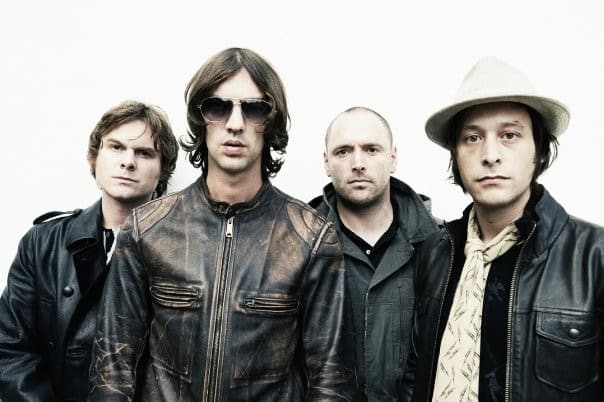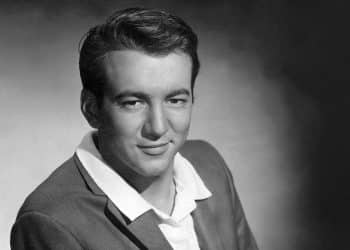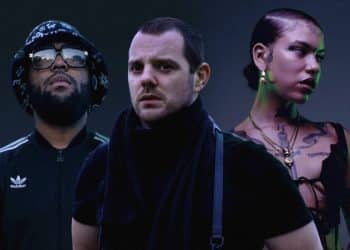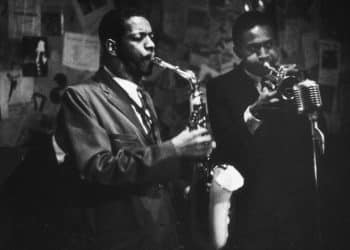The Verve were a British rock band formed in Wigan, England in 1989. The band consisted of Richard Ashcroft (vocals, guitar), Nick McCabe (guitar), Simon Jones (bass guitar), and Peter Salisbury (drums). The Verve gained critical acclaim and commercial success in the 1990s with their unique blend of shoegaze, Britpop, and psychedelic rock.
The band’s breakthrough came with their third album “Urban Hymns” in 1997, which featured hit singles such as “Bitter Sweet Symphony” and “The Drugs Don’t Work”. The album’s introspective lyrics and lush instrumentation cemented The Verve’s status as one of the defining bands of the Britpop era.
Despite their success, the band was plagued by internal tensions, and they disbanded in 1999. Richard Ashcroft went on to have a successful solo career, while the other members pursued various musical projects.
In 2007, The Verve reunited for a brief period, releasing the album “Forth” before once again disbanding. Throughout their career, The Verve remained known for their atmospheric soundscapes, Ashcroft’s distinctive vocals, and their ability to evoke a sense of introspection and yearning in their music.
Overall, The Verve left a lasting impact on the British music scene and continue to be remembered as one of the most innovative and influential bands of the 1990s.
# 10 – All in the Mind
“All in the Mind” by The Verve is a captivating and hypnotic rock song that showcases the band’s unique sound and style. The song’s swirling and atmospheric sound is complemented by Richard Ashcroft’s distinctive vocals, which deliver abstract and impressionistic lyrics that hint at a deeper meaning beneath the surface. The chorus is particularly memorable, with Ashcroft singing “It’s all in the mind, so don’t worry about time, we’re all living on borrowed time.” Overall, “All in the Mind” is a mesmerizing and thought-provoking song that showcases The Verve’s incredible talent for crafting music that is both emotionally resonant and intellectually stimulating.
# 9 – Blue
“Blue” by The Verve is a haunting and melancholic rock ballad that showcases the band’s signature sound of emotive vocals and dreamy guitar melodies. The song’s slow tempo and atmospheric production create a sense of introspection and nostalgia, as frontman Richard Ashcroft sings about the pain and longing of a past relationship. The chorus is a powerful and emotive refrain, with Ashcroft lamenting “And it’s true we named our children after towns that we’ve never been to.” “Blue” is a standout track from The Verve’s seminal album “A Northern Soul,” and a testament to their ability to create deeply emotional and powerful music.
# 8 – Rather Be
“Rather Be” is a track from The Verve’s second album “A Northern Soul”. The song is a driving rock ballad that features Richard Ashcroft’s signature emotive vocals and Nick McCabe’s searing guitar work. The lyrics address themes of personal redemption and the search for meaning, with Ashcroft singing about the importance of holding on to hope in the face of adversity. The song’s anthemic chorus and explosive guitar solos make it a standout track on the album and a fan favorite. Overall, “Rather Be” showcases The Verve’s ability to create music that is both introspective and uplifting, combining emotive vocals with powerful instrumentation.
# 7 – The Sun, The Sea
“The Sun, The Sea” by The Verve is a dreamy and introspective rock ballad that showcases the band’s versatility and range. The song’s gentle and wistful melody is complemented by Richard Ashcroft’s heartfelt and emotive vocals, which deliver poignant lyrics about the fleeting nature of life and the beauty of the natural world. The chorus is particularly moving, with Ashcroft singing “I’m in love with the sun, I’m in love with the sea, I’m in love with the feeling that you give me.” Overall, “The Sun, The Sea” is a beautiful and contemplative song that highlights The Verve’s ability to create music that is both deeply personal and universally resonant.
# 6 – A Northern Soul
“A Northern Soul” by The Verve is a sweeping and epic rock track that showcases the band’s dynamic sound and Richard Ashcroft’s emotive vocals. The song’s soaring guitars, pounding drums, and lush orchestration create a sense of grandeur and urgency, as Ashcroft sings about the struggles and hardships of everyday life. The lyrics are full of existential questions and poetic imagery, as Ashcroft declares “All of my thoughts just come back to me / Like a sweet baroque melody.” “A Northern Soul” is the title track of The Verve’s critically acclaimed album, and a standout example of their ability to create deeply affecting and powerful music.
# 5 – Gravity Grave
“Gravity Grave” is a single from The Verve’s debut album “A Storm in Heaven”. The song is a psychedelic rock epic that showcases the band’s innovative approach to songwriting and production. The track features swirling guitars, haunting vocals, and a driving rhythm section that creates a hypnotic, otherworldly sound. The lyrics address themes of alienation and escape, with Richard Ashcroft’s vocals soaring over the atmospheric instrumentation. “Gravity Grave” became a cult classic among fans of shoegaze and psychedelic rock, cementing The Verve’s status as one of the most visionary and influential bands of the 1990s.
# 4 – Sonnet
“Sonnet” by The Verve is a beautiful and melancholic ballad that showcases Richard Ashcroft’s incredible talent as a songwriter and vocalist. The song’s tender and nostalgic melody is complemented by Ashcroft’s emotive and evocative vocals, which deliver poignant lyrics about the passage of time, the pain of loss, and the power of memory. The chorus is particularly haunting, with Ashcroft singing “Yes, there’s love if you want it, don’t sound like no sonnet, my lord.” Overall, “Sonnet” is a masterful and moving song that captures the essence of The Verve’s unique sound and style, and highlights their ability to create music that is both heart-wrenching and uplifting.
# 3 – Lucky Man
“Lucky Man” by The Verve is a beautiful and introspective ballad that showcases the band’s ability to create emotionally charged music. The song’s gentle acoustic guitar and Richard Ashcroft’s delicate vocals create a sense of vulnerability and longing, as he sings about the fleeting nature of happiness and success. The chorus is a powerful and uplifting refrain, with Ashcroft declaring “Happiness, more or less / It’s just a change in me / Something in my liberty.” “Lucky Man” is a standout track from The Verve’s album “Urban Hymns,” and a testament to their ability to create music that is both introspective and uplifting.
# 2 – The Drugs Don’t Work
“The Drugs Don’t Work” is a single from The Verve’s third album “Urban Hymns”. The song is a poignant ballad that features Richard Ashcroft’s soulful vocals over a simple acoustic guitar melody. The lyrics address themes of loss and mortality, with Ashcroft singing about the death of his father and the emptiness of drug use as a coping mechanism. The song’s emotive vocals and understated instrumentation create a sense of intimacy and vulnerability that resonated with listeners, making it one of The Verve’s most beloved and enduring tracks. Overall, “The Drugs Don’t Work” is a masterful example of the band’s ability to create music that is both personal and universal.
# 1 – Bittersweet Symphony
“Bittersweet Symphony” is a single from The Verve’s third album “Urban Hymns”. The song features a sample of an orchestral version of The Rolling Stones’ “The Last Time”, which was cleared for use but ultimately led to a legal dispute with ABKCO Records. The track is a sweeping, anthemic ballad that showcases Richard Ashcroft’s soaring vocals and Nick McCabe’s intricate guitar work. The song’s lyrics address themes of personal struggle and existentialism, with Ashcroft singing about the search for meaning in a world that often feels chaotic and overwhelming. “Bittersweet Symphony” became an instant classic, earning critical acclaim and topping charts around the world.








